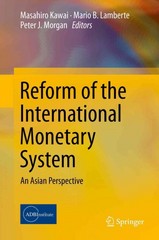Question
Douglass North and the New Institutionalism The traditional institutionalism associated with Veblen, Mitchell, and Galbraith is generally critical of neoclassical economics and supportive of government
Douglass North and the New Institutionalism The traditional institutionalism associated with Veblen, Mitchell, and Galbraith is generally critical of neoclassical economics and supportive of government intervention. In contrast, new institutionalism tends to be theoretical, market-oriented, and anti-interventionist.
There are several identifiable strands of this new institutionalist thought, each emphasizing the importance of institutions in understanding economic (or political) behavior and outcomes. One strand is the work of Harold Demsetz (1930-) on the role of property rights in promoting economic efficiency. A second strand is the analysis by Richard Posner (1939-) of the relationship between law and economics. A third is the focus of Ronald Coase (1910-) and Oliver E. Williamson (1932-) on transaction costs in explaining the organization and behavior of firms. A fourth is the work of James Buchanan (1919-) and Gordon Tullock (1922-) on public-choice theory, including analyses of rent seeking, interest groups, voting rules, and constitutional economics.*
The most sweeping strand of new institutionalism, however, is that associated with Douglass North (1920-), an American economic historian who won the 1993 Nobel Prize for his work. North criticizes neoclassical economics for its failure to recognize the importance of institutional constraints in economic decision making and its inability to explain the permanence of diverse economic institutions throughout the world. Unlike traditional institutionalists like Veblen, however, North embraces the neoclassicist's "choice theoretic" approach, which emphasizes rational economic decision making.
The choice theoretic approach is essential because a logically consistent, potentially testable set of hypotheses must be built on a theory of human behavior. The strength of microeconomic theory is that it is constructed on the basis of assumptions about individual behavior.... Institutions are a creation of human beings. They evolve and are altered by human beings; hence our theory must begin with the individual. At the same time, the constraints that institutions impose on individual choices are pervasive.
Institutions come into being because they minimize human interaction costs. They can be formal (for example, constitutions and laws) or informal (for example, unwritten codes of conduct). They can be specifically created (for example, the U.S. monetary system) or simply evolve over time (for example, the tradition of giving gratuities). Institutions are the formal and informal rules that govern economic and political behavior. In contrast, the players are individuals and organizations that exploit the opportunities provided within a particular institutional structure.
The form that institutions take owes much to the bargaining power of individuals and groups representing them. But once institutions are in place, the behaviors and outcomes from individual choices reinforce their continued presence. For example, worker stock ownership through pension plans reinforces support for capitalist institutions. As a result of reinforcement, a nation's institutions are path dependent: the institutional path first selected (or imposed) determines the path long taken. Institutions gradually evolve because the "players" sometimes succeed in getting the "rules" changed in their favor. Only when it is clear that a particular institutional path is a dead end to achieving desired objectives, or when the desired objectives themselves change, do societies radically alter their institutions.
Institutional constraints thus vary both through time and across countries. The institutions provide the incentive structures for various types of economic and political activity. Wealthy nations essentially are wealthy because their institutional constraints define a set of payoffs to political and economic activity that encourages education and skill acquisition, capital expansion, new technology, and thus economic growth. Poor nations are poor because their institutions define a set of payoffs to political and economic activity that discourages wealth creation. Property rights are poorly defined and enforced, the brightest minds enter government or emigrate, social and religious customs limit work and disparage material gain, and wealth redistribution is given more emphasis than wealth creation.
North's genius has been to wed traditional neoclassical analysis with the analysis of institutions. By so doing, he explains how institutions affect economic choices and how economic choices gradually alter institutions.
QUESTION
Douglas North from the New Institutionalist School received a Nobel Prize in 1993 for combining the role of "institution" and "individual" in economic decision making. By using the outcome of the 14th Malaysian general election as an example, explain how institutions affect individual choices before the election and how individual choices change the institutions after the election according to him.
(20 marks)
Step by Step Solution
There are 3 Steps involved in it
Step: 1

Get Instant Access to Expert-Tailored Solutions
See step-by-step solutions with expert insights and AI powered tools for academic success
Step: 2

Step: 3

Ace Your Homework with AI
Get the answers you need in no time with our AI-driven, step-by-step assistance
Get Started


